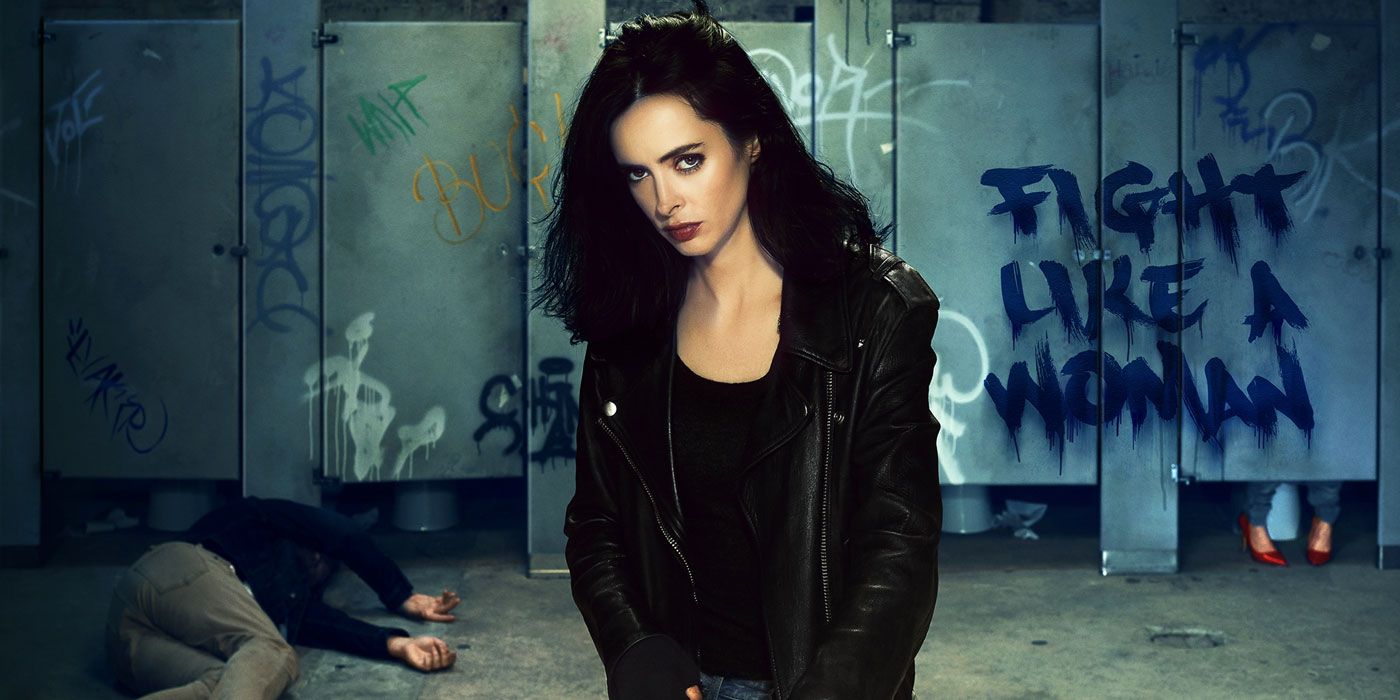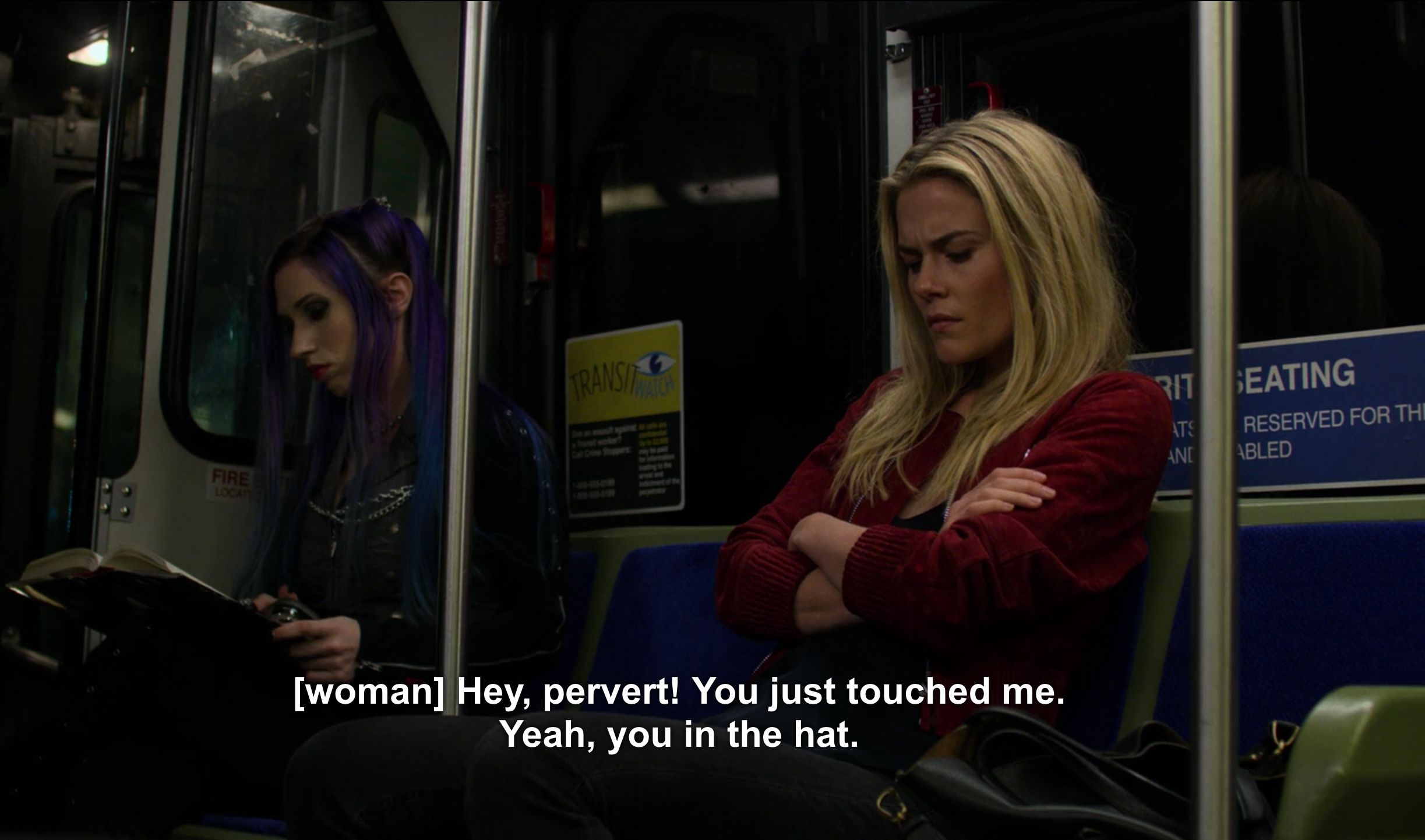WARNING: The following article contains spoilers for Jessica Jones Season 2, streaming now on Netflix.
The nuanced depictions of sexual assault and trauma in Jessica Jones Season 1 garnered praise from fans and critics alike, and the new season continues the trend of exploring important social issues, perfectly capturing the spirit of the #MeToo movement.
Started by activist Tarana Burke and popularized by actor Alyssa Milano, #MeToo came to prominence in October 2017 following the accusations of sexual misconduct against media mogul Harvey Weinstein. The hashtag spread across social media, with many using it in reference to their own personal experiences with sexual assault and harassment.
The movement resulted in accusations and action against a number of famous and/or powerful men, including X-Men: The Last Stand director Brett Ratner, CW showrunner Andrew Kreisberg, DC Comics editor Eddie Berganza, actor Kevin Spacey and comedian Louis C.K.
RELATED: Jessica Jones Embraces a Major Link to Captain America: Civil War
Jessica Jones Season 2 features its own middle-aged director facing an accusation of sexual misconduct: Max Tatum. Although Max doesn't appear on screen for a particularly long amount of time, the show does a great job of establishing him as the sort of "good person" that many think incapable of sexual malfeasance, with his regular donations to hospitals and his eco-friendly electric car.
However, that's just his public persona, and it conflicts sharply with his private life, in which he -- while in a position of power -- engaged in a sexual relationship with a 15-year-old Trish Walker.
When first confronted, Max attempts to justify his past actions by saying that he "was the one who was used." In a later episode, he even goes so far as to claim that he "loved her," also indicating that Trish was the only underage actor with whom he'd done anything inappropriate. This is, of course, the same character who in both conversations belittles Trish and, in the latter conversation, dares her to go public, saying, “See if you can handle the scrutiny," knowing that those who make accuse powerful men of sexual assault are often poorly treated. In light of that, love doesn't seem like the right word.
Sexual harassment and abuse aren't things that only happen to those in the film and television industry, and Jessica Jones does an excellent job of addressing the problem in everyday life. For example, halfway through the season, Trish kicks a man harassing a woman off of a bus after he touches a female rider. The newest season also makes reference towards sexual violence against homeless women in its fourth episode when Inez, a former nurse, tells Jessica and Trish that "every loser out there with a dick" is after her before asking, rhetorically, if they "know what it's like to be a woman on the streets." There are many instances of microaggressions and generally inappropriate conduct referenced and seen throughout the season, and it's hard not to notice.
Although #MeToo and so many other social movements highlighting the treatment of women have become increasingly prominent in recent months, Jessica Jones Season 2 actually finished production prior to the accusations against Weinstein, according to star Krysten Ritter. This has led some to ascribe a prognostic quality to the production, but that ignores the fact that women played a big role in making the season, with women directing all thirteen episodes.
Netflix and ABC chose to give a platform to people who were already painfully aware of the problems that #MeToo started addressing after Weinstein. That's because those people have lived those experiences. "This season, for me, is very personal," showrunner Melissa Rosenberg told Vulture. "Borrowing from my own life or from the writers’ lives, it was really just coming from that. It wasn’t in any way trying to make any kind of statement."
RELATED: Jessica Jones' Ritter Doesn't Believe There Will Be a Defenders Season 2
Jessica Jones Season 2 reflects the lives and experiences of so many creative women working in television and film, and that's why it's powerful. Even if all of Hollywood had remained silent following the accusations against Weinstein last October, the second season and all of the events of it would have still aired and brought the experiences of so many women into the public eye, which is fundamentally what #MeToo is about.
Streaming now on Netflix, Jessica Jones Season 2 stars Krysten Ritter, Rachael Taylor, Carrie-Anne Moss, Eka Darville, J.R. Ramirez and Janet McTeer.


